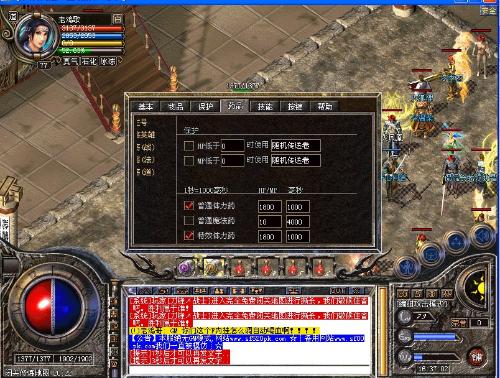全国最好的网通新开热血超级变态传奇私服发布网站
群伟伟开服网
- admin 2024年9月26日0
Chuanqi: The Mythical Legend of Chinese Culture
Chuanqi, often translated as "fantastical tales" or "legend," is a significant aspect of Chinese literature and culture that has captivated audiences for centuries. This genre encompasses a wide range of narrative forms that intertwine real and magical elements, reflecting the rich tapestry of Chinese mythology, history, and moral teachings. From ancient poems and stories to modern adaptations, chuanqi has played an essential role in shaping the cultural identity of China. In this article, we explore the origins, themes, and cultural significance of chuanqi, illuminating why it continues to resonate with todays audiences.
The Origins of Chuanqi
The roots of chuanqi can be traced back to the Tang Dynasty (618-907 AD), a golden age for Chinese literature. During this period, writers began to incorporate elements of the supernatural and fantastical into their narratives, creating stories that captivated the imaginations of their readers. Chuanqi served as a means of exploring complex themes such as love, loyalty, and moral dilemmas, often through allegorical and metaphorical representations.

One of the earliest and most influential collections of chuanqi is "The Tale of the Western Wing," written by Wang Shifu in the late 13th century. This story, which combines romance, comedy, and elements of fantasy, has been celebrated for its intricate characterization and innovative use of dialogue. Over time, the chuanqi genre evolved, incorporating various styles and influences from regional folklore and popular narratives, further enriching its narrative depth.
Thematic Elements of Chuanqi
Chuanqi stories are characterized by their intricate plots and multifaceted themes that resonate deeply with readers. A prominent theme is the struggle between good and evil, often depicted through the characters’ journeys and moral choices. Many chuanqi narratives feature protagonists who embark on quests filled with supernatural challenges that force them to confront their values and ultimately lead to personal growth. This framework allows readers to reflect on their own ethical dilemmas and societal norms.
Another vital theme present in chuanqi is the powerful connection between humanity and the supernatural. Many stories explore the influence of gods, spirits, and mythical creatures on human lives, emphasizing the belief in an interconnected universe where fate and destiny play crucial roles. For instance, the well-known story of "Madame White Snake" showcases the love between a human and a supernatural being, illustrating both the beauty and tragedy that can arise from such connections. This juxtaposition of the ordinary and the extraordinary invites readers to ponder the unseen forces that shape our lives.
Cultural Significance of Chuanqi
Chuanqi remains a vital component of Chinese culture and literature, providing insights into the historical context, beliefs, and values of Chinese society. These tales reflect the collective imagination of the people, revealing societal hopes, fears, and ideals through the lens of fantastical storytelling. Furthermore, chuanqi serves as a medium for preserving traditional customs and folk practices, allowing them to be passed down through generations.
In contemporary times, chuanqi has transcended its literary origins, influencing various forms of art, including theater, film, and television. Adaptations of classic chuanqi tales have gained immense popularity, showcasing the timeless nature of these narratives and their ability to resonate with modern audiences. The visual representation of chuanqi stories brings unique interpretations to life, reinforcing cultural pride and a sense of heritage among viewers.
Conclusion
Chuanqi is more than just a literary genre; it is a reflection of Chinese culture and identity that continues to evolve over time. Its rich history, captivating themes, and cultural significance make it an integral part of the human experience. As we explore the enchanting world of chuanqi, we gain a deeper appreciation for the stories that shape our understanding of morality, the supernatural, and the very essence of what it means to be human. The enduring legacy of chuanqi will undoubtedly inspire future generations to weave their narratives into the fabric of this timeless tradition.
文章内容页下在线分享
Chuanqi: The Mythical Legend of Chinese Culture
Powered By 2020-2025 Theme By 网站地图
评论列表: